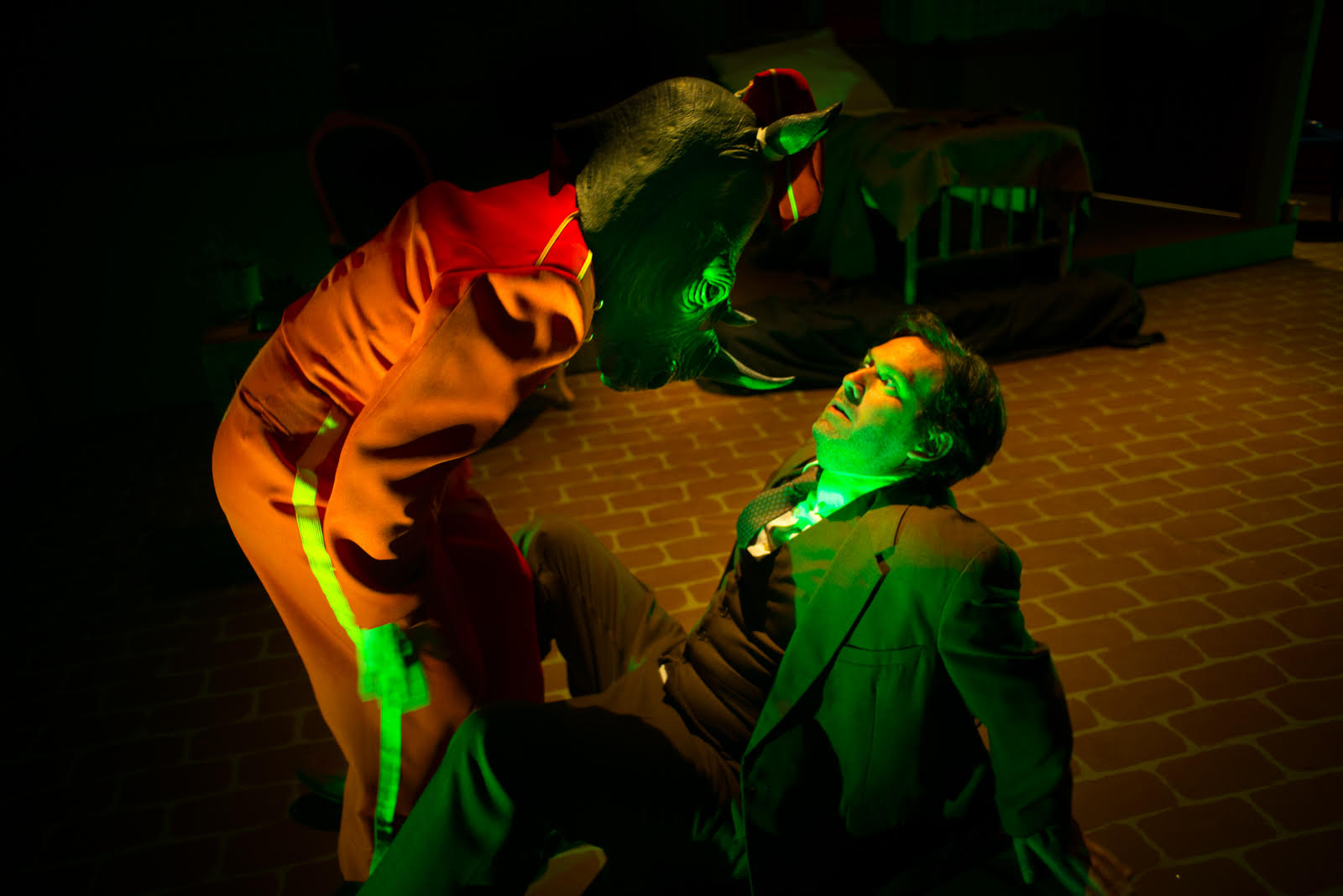 Kendrah McKay and Keith Stevenson. Photo by Vitor Martins
Kendrah McKay and Keith Stevenson. Photo by Vitor Martins
Rhinoceros @ The Pacific Resident
Rhinoceros explores in the purest sense the struggle between the individual and the herd. This is particularly so with the concept of morality in one man, but extenuating to the politics of mankind. There is a delicate balance between acting principally yet doing so communally. At what point is it considered selfish and misbehaving, rather than valiant?
Why is individuality, to be conscientiously distinct from another human being, valiant to begin with? It speaks to the notion of self-sufficiency in the creation of one’s very life as something worthy of a goal for living. Clearly, humanity flourishes when it its commonality is made ever-more complex with a more fractal eclectic set of human behaviors. Possibilities for being human, which may have never been conceivable, are brought to bear so effortless to the rest of the human race, to their advantage.
It is a conundrum then – to champion resistance in conforming to society yet mandating cooperation with others. Even to the point of acquiescing. And it is this acquiescence which is the study by Ionesco. Not so much whether a man ought to be critical of those that mindlessly conform to the group-as if this is a higher goal for humanity-but how ought a man respond when his society is turning mad?
The connotations of totalitarianism cannot go unnoticed. And the playwright magnificently brings to light the quotidian lives which are most susceptible to falling prey to toxic herdism. Of those that do not want their lives disturbed and will sheepishly abdicate their rights to not so much be an individual, but to be human. And yet we read history so sanctimoniously, as if we would have done any better when we place ourselves in the times and places in Europe when studying their twentieth century travesties. The alternative to peaceful submission is rowdy, obstreperous, vigilance, which creates tumult in an otherwise gentle stream of living. Why rock the boat?
When there is no will to live, there is no reason to defend one’s livelihood. And so Rhinoceros, with its tangential mockeries of the over-rationalized European society, deluded into believing in the kingliness of the mind of man despite its proven permanent incompetency at seeing reality for what it is vis-à-vis Immanuel Kant, demonstrates the horrific consequences of decadence, which is an unfamiliarity with the storms brought by the will to survive. Perhaps it is a feudalistic, noble, imperative to be on the vanguard for the horrors that lurk outside of society. The gift of liberal democracy to Europe was premature with such a diagnosis: the common people were not prepared to be defiant when their way of life was being challenged.
In any case, where there could be despair, Ionesco writes with hope and optimism. That it takes just one man to resist, to affirm his own life, to preserve his humanity over the animal kingdom. That man is a righteous animal because he can contemplate right and wrong, whereas the rhinoceros only sees things with a herd morality. This conclusion, in addition to the fanciful spacing and acting choreography, makes this a work of high European culture and incredibly reminiscent of Albert Camus’ meditation on Sisyphus: that affirming human life is good-in-itself.
Grade: A+

